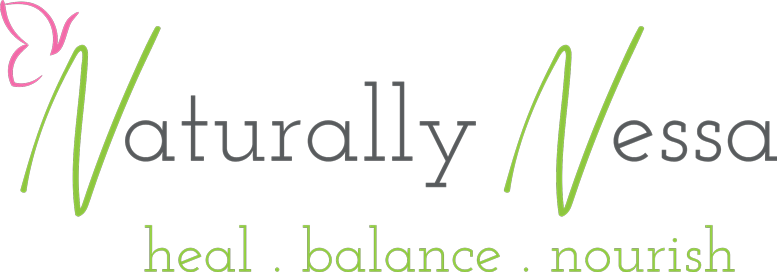Calming The Inner Critic
How many times have you felt insulted, degraded, and left in a state of anxiety or depression, as a result of your harsh inner voice?
“Why did you say such a stupid thing?”
“You look ridiculous!”
“You’re an embarrassment to yourself!”
“Quit acting like a weakling.”
“Face it, you’re a loser, and noone likes you.”
How many times have you heard a voice within you saying horrible words like these?
What you’re experiencing, is something common to all of humanity – and it’s known as the voice of the Inner Critic.
Unfortunately, we all have this Inner Critic.
But, for many of us, me included, this voice can become so loud, so dominant, and so overbearing, that it becomes like an inner dictator, which drains our confidence and life force energy.
If you struggle with an Inner Critic that makes it hard to practice self-love, why not start with self-kindness?
What is Self-Kindness?
Self-kindness is the art of being kind, gentle, and understanding toward yourself, and loving all your quirks.
When you practice self-kindness, you’re essentially treating yourself the same way that you would a best friend. Self-kindness involves being self-respecting, tolerant, patient, and forgiving toward ourselves.
The opposite of self-kindness is self-intolerance, which can grow into self-hatred or self-loathing if we aren’t careful.
Self-intolerance, or being unkind, impatient, and judgmental toward yourself, is a key sign that your Inner Critic is present.
But, how can you know whether your Inner Critic has actually taken over your life?
Here are a few signs that this negative part of you has hijacked your consciousness:
You dislike who you are and rarely feel self-kindness
You lack confidence in many areas of life
New people and situations trigger intense anxiety within you
Criticism from others, even the constructive variety, feels like a wrecking ball that shatters your world into tiny pieces
You’re a people-pleaser who gains self-worth from others or, alternatively, you’ve adopted a cynical and sarcastic exterior that doesn’t reflect who you truly are deep down
You often replay social situations in your mind and all the things you said or did wrong
Feeling empty inside is a common experience you have
You experience insomnia or poor sleep due to anxiety
Negative and self-judgmental thoughts follow you around everywhere you go
You’re highly critical of others
Feeling alone and isolated haunts you
Your negative self-talk creates self-fulfilling prophecies, which further reinforces your negative self-talk
You feel overwhelmed by life and daily responsibilities a lot of the time
How many of these signs speak to you and mirror your experience?
Why Self-Kindness is Easier Than Self-Love at the Beginning
Let’s face it: self-love can feel a little intimidating at first, especially when we are consumed by the Inner Critic, who likely resents or mocks the idea.
As such, self-kindness can feel like an easier route to cultivating a better relationship with ourselves, and others, because it’s based on being simply nice rather than being loving (the love part comes later through practice).
I see the spectrum of being nicer to ourselves this way:
Self-care > self-kindness > self-love > self-compassion
Self-care comes first, even before self-kindness, and it involves taking care of your physical, mental, and emotional needs.
Self-kindness comes next, and it involves learning how to be nice to yourself, just as you would a friend.
Self-love follows, and it’s all about learning to love and embrace all parts of yourself.
Finally, we arrive at self-compassion, which is a quality that goes a little deeper than self-love as it comes from the soul or higher heart.
Self-compassion is all-encompassing, and it’s a Bodhisattva (awakened being) path that we can extend out into the world around us.
Self-Kindness Practices For Calming the Inner Critic
Practicing self-kindness doesn’t need to involve lavishing large amounts of cash on self-care rituals or practices. So, right from the start, we can let go of that mentality.
Self-kindness is moreso a philosophy we adopt and a simple, grounded daily approach to ourselves that we commit to.
Here are some simple self-kindness practices for calming the Inner Critic:
Ask yourself this key question,
“How would I treat a good friend in this situation?”
Ask this question each time you’re faced with a situation that riles up your Inner Critic. It may feel a little weird or contrived at first to do this but, after a while, you’ll begin to see situations through new eyes and reclaim your seat in consciousness.
Hold the hand of your inner child.
The Inner Critic thinks it’s protecting the Inner Child within you, by keeping it safe from ‘making a stupid mistake’, but it’s not – it’s actually oppressing and hurting this vulnerable part of you.
To practice self-kindness, be mindful of the presence of your Inner Child, who you carry around everywhere, in all situations.
It’s your Inner Child who feels insecure, scared, and shy in new situations and around other people. So, be kind and gentle with this part of yourself.
You can, for instance, imagine holding the hand of your inner child in certain situations. You can speak with reassurance to your inner child, and you can also do inner child journaling to form a closer and more trusting relationship with this part of yourself.
Imagine yourself in the role of a kind parent, and step out of the role of the harsh critic – you’ll feel much better in the long term.
Choose a mantra that speaks deeply to you.
Mantras and affirmations have a powerful effect on the psyche by rewriting and deprogramming old stories – in this case, those created by the Inner Critic.
Being loyal to a mantra of choice means committing to using that mantra each day for at least a month. You could practice this mantra while gazing in the mirror in the morning, by repeating it a certain number of times during your daily meditation sessions, or by saying it to yourself at night before bed.
Some of my favorite mantras are, firstly, the Ho’oponopono prayer: “I love you. I’m sorry. Please forgive me. Thank you.”
I also love the Buddhist mantra, which invokes Bodhisattva of compassion, Avalokiteshvara, and purifies negativity: “Oṃ maṇi padme hūṃ.” (pronounced ohm manee peme hung).
Identify with the Inner Critic through journaling.
The Inner Critic can have a pernicious hold on our minds, and act as a dictator of our consciousness, especially if we were raised in unsupportive households that predisposed us to low self-esteem and dysfunctional coping mechanisms (a.k.a. having an overactive Inner Critic).
Thankfully, learning how to disidentify with the sticky energy of the Inner Critic can happen through many avenues. One of my favourites is through journaling.
What I adore about journaling, is that it can happen anywhere, at any time. Have something you want to write down? Grab your phone and quickly write it down. Only have two minutes to spare? That’s fine. Just write what you can!
Some simple questions you can journal about could be, for instance:
What negative self-talk has my Inner Critic created today?
How is the negative self-talk I’m experiencing untrue? Find proof to the contrary.
What deeper positive need does my Inner Critic have, that it’s trying to have met through its toxicity right now?
(E.g., love, approval, safety, respect).What one affirmation can counteract this disempowering inner belief?
What is my inner critic telling me right now? What is my loving soul tell me instead?
Am I being led by the Inner Critic or the Compassionate Heart?
Educate yourself through book therapy.
I love the idea of book therapy or bibliotherapy, which refers to reading as a healing practice.
Some of my greatest epiphanies and breakthroughs have come while reading a good book, and delving into the minds and hearts of the teachers, philosophers, sages, and poets who have revealed their secrets in written form.
Some books you may like to read or explore, that help you let go of the Inner Critic (directly or indirectly), are the following:
Homecoming: Reclaiming and Championing Your Inner Child by John Bradshaw (one of my favorites)
The Gifts of Imperfection by Brene Brown
Peace Is Every Step: The Path of Mindfulness in Everyday Life by Thich Nhat Hanh (I had a spiritual experience while reading this book)
Self-Compassion: The Proven Power of Being Kind to Yourself by Kristin Neff
Choose just one book and start from there.
Recognise that your environment and habits can play a big role in triggering your Inner Critic
If you’re surrounded constantly by negative, judgmental people, what kind of impact do you think that has on your own psyche? The answer is pretty obvious: it’s like drinking poison.
Not only that, but, if you’re also feeding your mind a never-ending stream of shallow, ego-centric, negative, and sensationalist content (via social media, for instance), the poor impact on your mental health is quite evident (and well-documented).
While we can’t always distance ourselves from nasty people, we can find a way of being conscious of what kind of energy we allow into our inner space.
Notice what type of content you tend to listen to, watch, and consume. Is it affirming? Is it inspiring? Is it authentically educational or expansive to your psyche? Or does the content cause you to constrict in fear, anger, and toxic comparison?
Limit the time you spend with critical people, both in real life and online. Seek out people and spaces that feel more life-affirming and supportive. You’ll notice that this has a greatly positive impact on your well-being, making it harder for your Inner Critic to usurp your consciousness.
Go Slowly and Be Gentle
Practicing self-kindness means going slowly and being gentle with yourself. It’s okay to lapse into old patterns of self-criticism and insecurity; that’s totally normal. Accept when this happens and befriend yourself!
One sneaky tactic you may notice your Inner Critic adopting, is using self-kindness as a yardstick to measure your worth, a.k.a., “You weren’t self-kind today. Shame on you!” – This is a trap almost all of us who try to be nicer to ourselves fall into. So, once you notice this mentality emerging, just let it go.
PIN FOR LATER:


